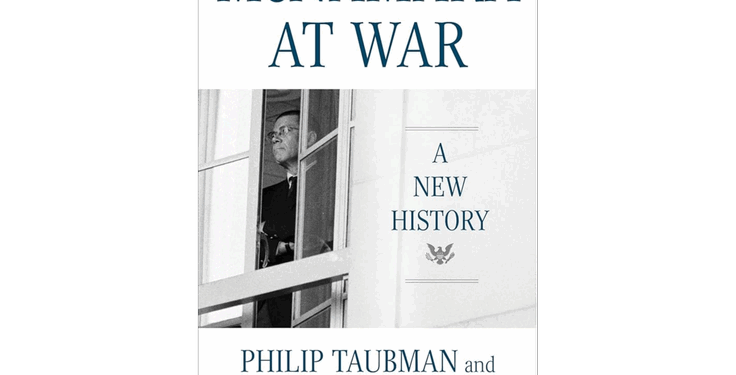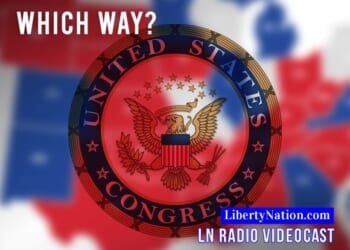One of the few aspects of the Vietnam war about which most historians agree is that Robert McNamara horribly mismanaged it as secretary of defense. There is no agreement, however, on how McNamara did the nation such a disservice. For those who view American intervention in Vietnam as unnecessary and inherently futile, McNamara is condemned for getting the United States into the war and then for refusing to get it out once he himself became disillusioned. For those who view the intervention as a noble cause that could have ended victoriously, McNamara’s principal failing was his imposition of severe restraints on the military.
In the past three decades, historians have produced a plethora of histories that explore these competing interpretations. A book entitled McNamara at War might be expected to give close attention to these histories and assess the validity of the opposing arguments and evidence. Instead, the authors ignore the new accounts and side with a version of the “unnecessary and inherently futile” school very similar to the one popular 30 years ago.
Half of McNamara at War covers the periods before and after his time as the war’s principal architect. The chapters on McNamara as defense secretary cover the Vietnam war at some length, though the book gives considerably greater weight to biography than military history. Its principal strength lies in the depth of biographical details, of which a considerable number are derived from new interviews and previously untapped private documents.
The authors acknowledge that prior biographers and historians have delved deeply into McNamara’s life. Nevertheless, they contend that “the full story of the psychological and emotional forces that shaped McNamara’s life and career remains to be told.” One would expect to find the new insights into psychological and emotional forces in the sections on McNamara’s youth and pre-Pentagon career, but the conclusions found therein do not break much new ground.
The chapters on McNamara’s service as secretary of defense contain long passages on decidedly nonmilitary topics, such as his friendship and dalliances with Jacqueline Kennedy, his relationship with Bobby Kennedy, Lyndon Johnson’s early pre-presidential life, and JFK’s burial site. The authors demonstrate that some of this material has a bearing on McNamara as wartime leader. Especially interesting is new evidence that the aversion of Bobby Kennedy and Jackie Kennedy to the Vietnam war contributed to McNamara’s own disillusionment.
At times, though, tangential biographical material proliferates at the expense of the war and McNamara’s leadership. For instance, the Taubmans spend only two pages on the Tonkin Gulf incidents, neglecting to mention critical details like McNamara’s misleading description of the event as “unprovoked,” the debate over the magnitude of the reprisal strikes, and the impact on the North Vietnamese. They spend the next six pages on McNamara’s interactions with Jackie and Bobby Kennedy at this point in time, including McNamara’s sending of the novel Barabbas to Jackie and his decision to spend the night with Jackie while Mrs. McNamara was traveling.
The sections on McNamara’s tenure as secretary of defense repeat valid criticisms that have been made by many others. The authors fault McNamara for trying to transplant management techniques from the auto industry to the Pentagon. They charge him with putting loyalty to President Lyndon B. Johnson ahead of his oath to the Constitution. McNamara’s arrogance, they observe, prevented him from heeding sound advice.
Taubman and Taubman rightly note that the Cuban Missile Crisis strengthened McNamara’s distrust of the military, but they miss the crucial point that the crisis also bolstered McNamara’s confidence in abstract theories on limited war, as propounded by academics like Thomas Schelling and Herman Kahn. McNamara based the Tonkin Gulf reprisals of August 1964, the Rolling Thunder campaign of 1965, and the American troop deployments in the summer of ’65 on the premise of these theorists that small doses of force would convey resolution to the enemy, thereby inducing him to avoid escalation.
McNamara’s disenchantment began in November 1965 when surging North Vietnamese infiltration confounded the theories. The diary of McNamara’s close aide John McNaughton, which the Taubmans are the first historians to access, contains interesting new details about McNamara’s demoralization. The secretary of defense began speaking of removing U.S. troops from Vietnam in early 1966.
McNamara would not, however, recommend an immediate withdrawal. Taubman and Taubman correctly attribute this unwillingness to McNamara’s continued belief in the domino theory, which foretold catastrophe elsewhere in Asia should South Vietnam fall. They are less convincing in arguing that McNamara and Presidents Kennedy and Johnson subscribed to the domino theory because they were “practically prisoners of a Cold War ideology” that blinded them “to the pivotal role that nationalism played in Ho Chi Minh’s determination to reunite Vietnam.”
The Taubmans applaud McNamara for realizing after the war that Ho Chi Minh was really the “Tito of Asia,” a Communist who put his nation’s interests ahead of the interests of other Communist powers and the global revolution. Numerous histories written during the past 30 years, however, have done grievous harm to the analogy. Ho Chi Minh, it turns out, was far more committed to collaboration with the Soviets and Chinese than Tito had been. Thus, the domino theory was the product of accurately perceived geopolitical reality, not ideological paranoia.
From December 1965 onwards, McNamara sought to end the conflict through a negotiated settlement. To entice the North Vietnamese to the bargaining table, he convinced President Johnson to pause the bombing of North Vietnam several times. When American generals warned the pauses would allow the North Vietnamese to move greater amounts of war materiel into South Vietnam, McNamara invoked statistics that appeared to show otherwise. While the Taubmans are often skeptical of McNamara’s use of statistics, in this instance they accept his numbers as valid. In actuality, McNamara’s misuse of statistics was as egregious in this case as in any.
In the fall of 1967, after the bombing pauses had done nothing to move Hanoi toward peace, McNamara urged Johnson to suspend the bombing indefinitely. The president, however, had finally realized McNamara had been wrong about the pauses. The North Vietnamese, Johnson said, had been “playing us for suckers.” He now rejected McNamara’s recommendation to stop the bombing and lost confidence in him more generally. Communist accounts published after the war make clear the North Vietnamese had indeed duped the Americans with false promises of meaningful negotiations to halt a bombing campaign that was more effective than McNamara had thought.
The Taubmans very briefly reject the argument of recent historians that McNamara imprudently and duplicitously suppressed recommendations from the Joint Chiefs of Staff for escalatory measures in North Vietnam, Laos, and Cambodia. They contend that McNamara and Johnson were right to reject the military’s recommendations because of the likelihood they would lead to war with China and the Soviet Union. They appear to be unaware that large amounts of evidence, some of which had been available to McNamara, show the Chinese and Soviets had no interest in entering the war in response to American escalation.
During the 1990s, McNamara spent much of his time telling the world the United States had been wrong to fight in Vietnam. As the Taubmans note, McNamara came under renewed fire for the tardiness of his confessions, the lingering egotism that accompanied them, and the inaccuracy of certain historical claims, among other things. What the Taubmans leave out is that McNamara used this campaign to obscure his central role in preventing President Johnson from following the sound advice of America’s generals. Although willing to shoulder blame for getting the United States into Vietnam, he was never willing to concede that he had prevented Johnson from adopting a strategy that would have made victory possible.
McNamara at War: A New History
by Philip Taubman and William Taubman
W.W. Norton and Company, 512 pp., $39.99
Mark Moyar holds the William P. Harris Chair of Military History at Hillsdale College and is the author of three books on the Vietnam war.

















